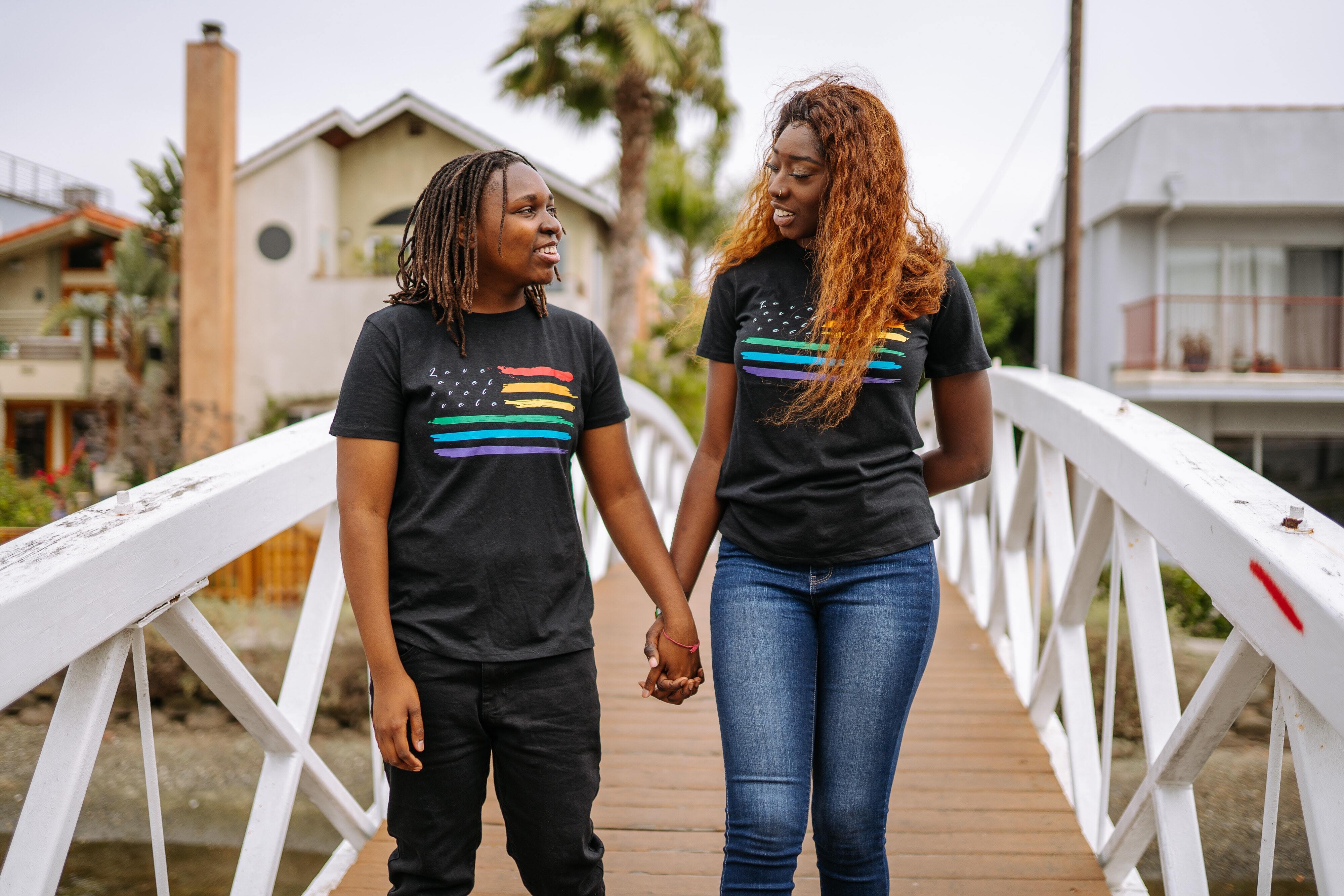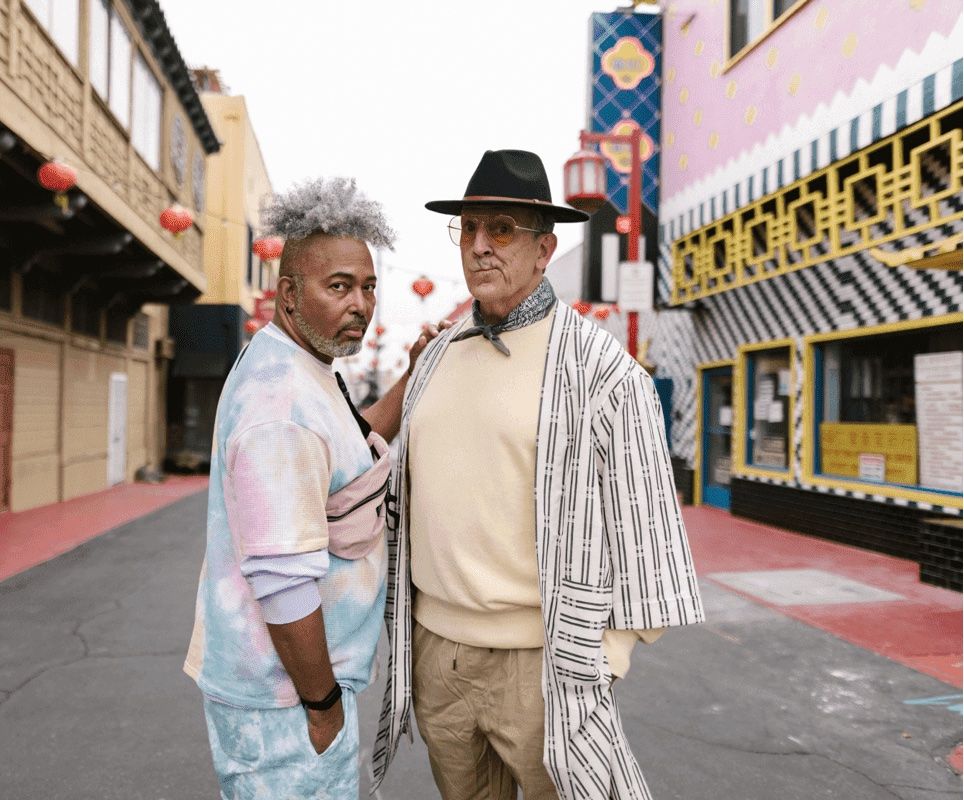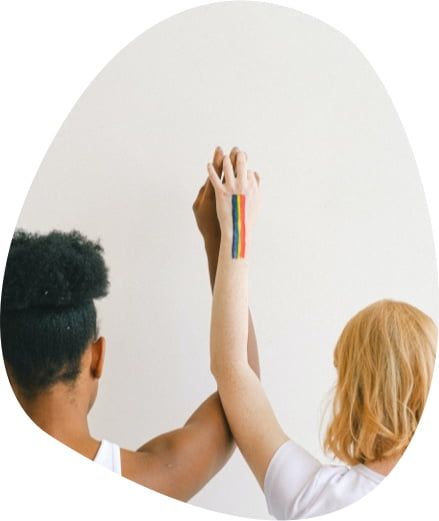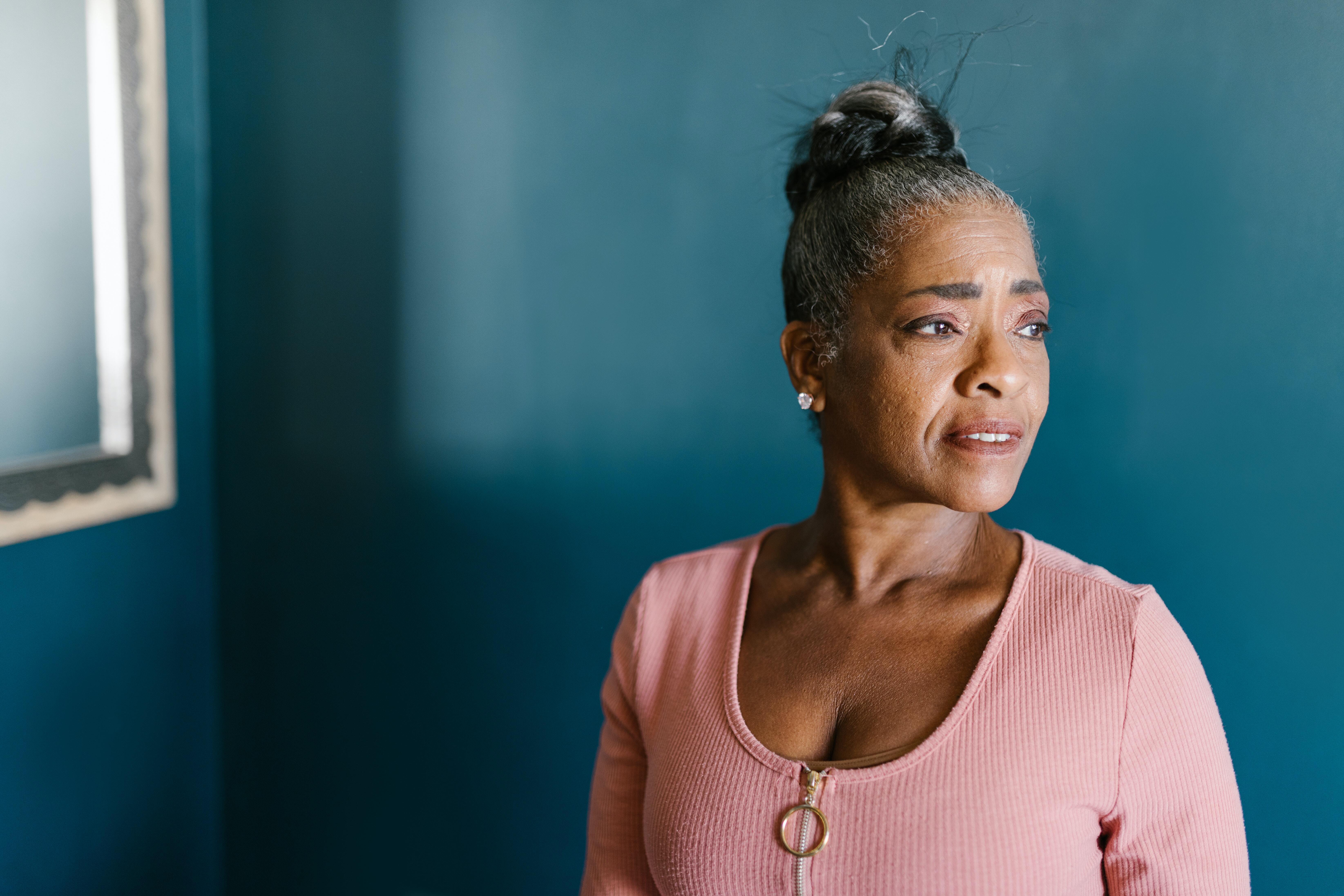The Transgender and Non-binary Generation Gap
1 in 300 people in Canada — the first country to provide census data on transgender and non-binary people — are transgender or non-binary, but younger generations have a much larger proportion.

 Back
BackThere are LGBTQIA2S+ elders who are thriving, despite facing decades of discrimination. So what can we learn from them about cultivating resilience?
It has been more than 50 years since the Stonewall riots – a tipping point in LGBTQIA2S+ (LGBTQ+ for short) history. A 20-year partygoer that night at the Stonewall Inn, when it was raided by New York City police, would now be in their 70s.
The LGBTQ+ civil rights movement catalyzed by Stonewall has ushered in a new era of visibility, rights, and freedoms for many LGBTQ+ individuals. Many have come out of the closet and come together under the rainbow flag to create a shared culture.
Still, their lives have been fraught with adversity, risk, and loss. Generations of LGBTQ+ individuals have faced discrimination, marginalization, and social exclusion. Some were considered mentally ill or criminal because of their sexual orientation and gender identity. Others were rendered invisible, the fear of stigma and discrimination preventing them from self-identifying or revealing their identities. They have also faced rejection by family members and colleagues, and tremendous loss of loved ones during the HIV/AIDS pandemic.
Despite these hardships, many LGBTQ+ elders today say they are happy and aging successfully.
Researchers are taking note and asking, what is their secret? How have LGBTQ+ elders overcome a lifetime of stress related to homophobia and/or transphobia, and how are they coping with the intersections of genderism, ageism, and other forms of discrimination? What can younger people and marginalized individuals learn from older LGBTQ+ adults about resilience?
"This is a population that's overcome incredible obstacles to achieve greater and greater integration into the mainstream fabric of society in just a few short years," says Alex Keuroghlian, Director of the National LGBT Health Education Center at The Fenway Institute and psychiatrist at Massachusetts General Hospital and Harvard Medical School.
"I think if younger people feel connected to the tremendous resilience of older LGBTQI+ adults, that can be tremendously empowering for them," he says.
2.7 Milion
Number of LGBT adults aged 50 or older in the U.S.
20%
of older LGBT adults are persons of color.
1 in 300 people in Canada — the first country to provide census data on transgender and non-binary people — are transgender or non-binary, but younger generations have a much larger proportion.
Generation Z
(born between 1997 ~ 2006)
Millennials
(born between 1981 ~ 1996)
Generation X
(born between 1966 ~ 1980)
Baby boomers
(born between 1946 ~ 1965)
Greatest & Interwar Generations
(born 1945 or earlier)


The evidence is clear that a lifetime of social stigma and discrimination has left an imprint on LGBTQ+ elders — especially LGBTQ+ elders of color and older transgender adults.
For example, older adults who identify as lesbian, gay, or bisexual (LGB) have worse mental health outcomes, including more depression and anxiety, than older heterosexual and cisgender people. For example, a U.S. national study found that LGB adults were one and a half to two times as likely as heterosexuals to report lifetime mood and anxiety disorders.
In a separate study, the same researchers examined whether perceived discrimination contributed to poorer mental health outcomes among LGB adults. For instance, nearly two-thirds of participants reported experiencing discrimination in the past year based on their sexual orientation, gender, or race/ethnicity. Furthermore, there was an association between discrimination and mental health outcomes: The greater the number of types of discrimination participants experienced, the higher the probability they reported a mental health disorder in the past year.
2 out of 3
LGB adults reported experiencing discrimination based on their sexual orientation, gender, or race/ethnicity in the past year.
Likelihood of a mental health disorder in the past year among those who reported discrimination based on gender, sexual orientation, or race/ethnicity compared to those who reported no discrimination.
LGB men and women who experience:
No discrimination
One type of discrimination
Two types of discrimination
Three types of discrimination (sexual orientation, racial/ethnic, gender)
Keuroghlian sees the mental health consequences of discrimination as he cares for LGBTQ+ elders in his clinic and is working to develop better mental health care services to address them. He notes that in addition to mood and anxiety disorders, there is a higher prevalence of PTSD and suicide attempts among LGBTQ+ adults than heterosexual and cisgender adults. Among LGBTQ+ adults, decreased self-care and engagement with healthcare also leads to various physical health problems later.
When thinking about stress and adversity and the role of resilience in LGBTQ+ mental health, Keuroghlian says it is essential to acknowledge that "the experience of being LGBTQI+, of one's gender identity or sexual orientation, is very different depending on the generation you came up in and what was going on culturally. For example, suppose you were 18 when Stonewall was happening. That's different from being 18 when "Don't Ask, Don't Tell" was passed, which is different from being 18 when marriage equality was passed by the U.S. Supreme Court," says Keuroghlian. (The "Don't Ask, Don't Tell" directive prohibited the U.S. military from asking applicants about their sexual orientation. It was issued in 1993.)
"We have to think in context and intersectionally about LGBTQI+ mental health, and that's very true depending on how old you are," he adds.
Researcher Karen Fredriksen-Goldsen identified three generations of LGBT older adults living in the U.S., each with unique life experiences.
Invisible Generation
(Born in the 1910s, 20s)
Came of age during Great Depression and World War II when LGBT people were largely absent in the public discourse.
Silenced Generation
(Born in the 1930s, 40s)
Came of age when same-sex behavior was criminalized and pathologized as a mental disorder; lived through Canada’s Cold War-era LGBTQ purge.
Pride Generation
(Born in the 1950s, 60s)
Birthed Stonewall; experienced decriminalization of sodomy, declassification of same-sex behavior as a mental disorder, and AIDS crisis.
70%
of older transgender adults say they are aging successfully.
Transgender elders say they are aging successfully.
How have they overcome stigma, discrimination, and sometimes hate crimes to do so?
Here is their resilience repertoire:
1. Nurturing the spiritual self
Through a wide variety of spiritual beliefs and practices.
2. Exercising agency
By being intentional about choices that enabled living well and enjoying old age.
3. Self-acceptance
Even in the face of pervasive stigmatization.
Transgender elders say they are aging successfully.
How have they overcome stigma, discrimination, and sometimes hate crimes to do so?
4. Caring relationships
By tending and befriending family, friends, and other members of the LGBTQ+ community.
5. Advocacy and activism
Through volunteerism and a commitment to improving the lives of transgender persons.
6. Enjoying an active, healthy life
Pursuing hobbies and activities like travel, staying physically active, and living with joy, playfulness, and creativity.
In 2014, a groundbreaking survey of older LGBTQ adults found that LGBTQ elders were twice as likely as their heterosexual and cisgender peers to be mentors during their retirement years.
This impulse to guide the next generation — referred to by researchers as "generativity" — could be a powerful force for social change and increasing community resilience among younger LGBT individuals and people from other marginalized groups.
"I wish we could capture the world I've known between 1979 and now. I think sometimes it's hard to remember how really scary it was in 1983 to be openly gay," Dani, a 54-year-old lesbian woman, told researchers examining narratives of generativity among older LGBTQ+ adults.

Where LGBTQ+ Youth Find Moments of Joy:
Sample of responses from a 2022 national survey on LGBTQ mental health.
Mentoring itself is also a resilience strategy. Research has shown that it contributes to positive well-being later in life, especially in LGBTQ+ adults, possibly by helping them channel their experiences of stigma and discrimination and build meaningful relationships.
Before the pandemic, SAGE, a not-for-profit organization representing LGBTQ+ elders in the United States, ran speed-mentoring events in several cities that connected LGBTQ+ adults across generations.
Keuroghlian says that kind of face-to-face intergenerational contact is valuable. Various support groups at The Fenway Institute, where the LGBTQI+ Aging Project is based, are helping to connect people in need of support.
"There's value on both sides. For older people, it helps them remember that they're still vital and relevant, and there's a great joy in mentoring younger LGBTQ plus people and sharing all the hard-earned lessons that one has had. Younger people learn an incredible amount and see where they came from, and don't for granted the relative increase in freedom and opportunity that exists today," he says.
Organizations like SAGE (Advocacy and Services for LGBTQ+ Elders) host speed mentoring events for LGBTQ adults.
The Trevor Project offers peer-to-peer support for LGBTQ youth.
Egale offers tips for adults supporting 2SLGBTQI youth.
Resources from the Thrive Learning Centre, developed by Fountain of Health, a nationally initiative on successful aging, are designed help people cultivate resilience and well-being at any age.
LGBTQI+ Aging Project at The Fenway Institute offers various programs and support groups for LGBTQ+ seniors. Similar options may be available in the age- and LGBTQ2S+ friendly communities identified by the Dear Collaborative.
Do you have a resource to suggest?
Reach out to us at[email protected]

A new emphasis on culturally competent mental health care could be a game-changer for racialized women. Meet some of the leaders who are transforming mental health services and helping others connect to therapists who understand their worldviews.

The colorblind approach to data collection obscures the mental health crisis and fails those most in need of care. Here's why what we measure matters.